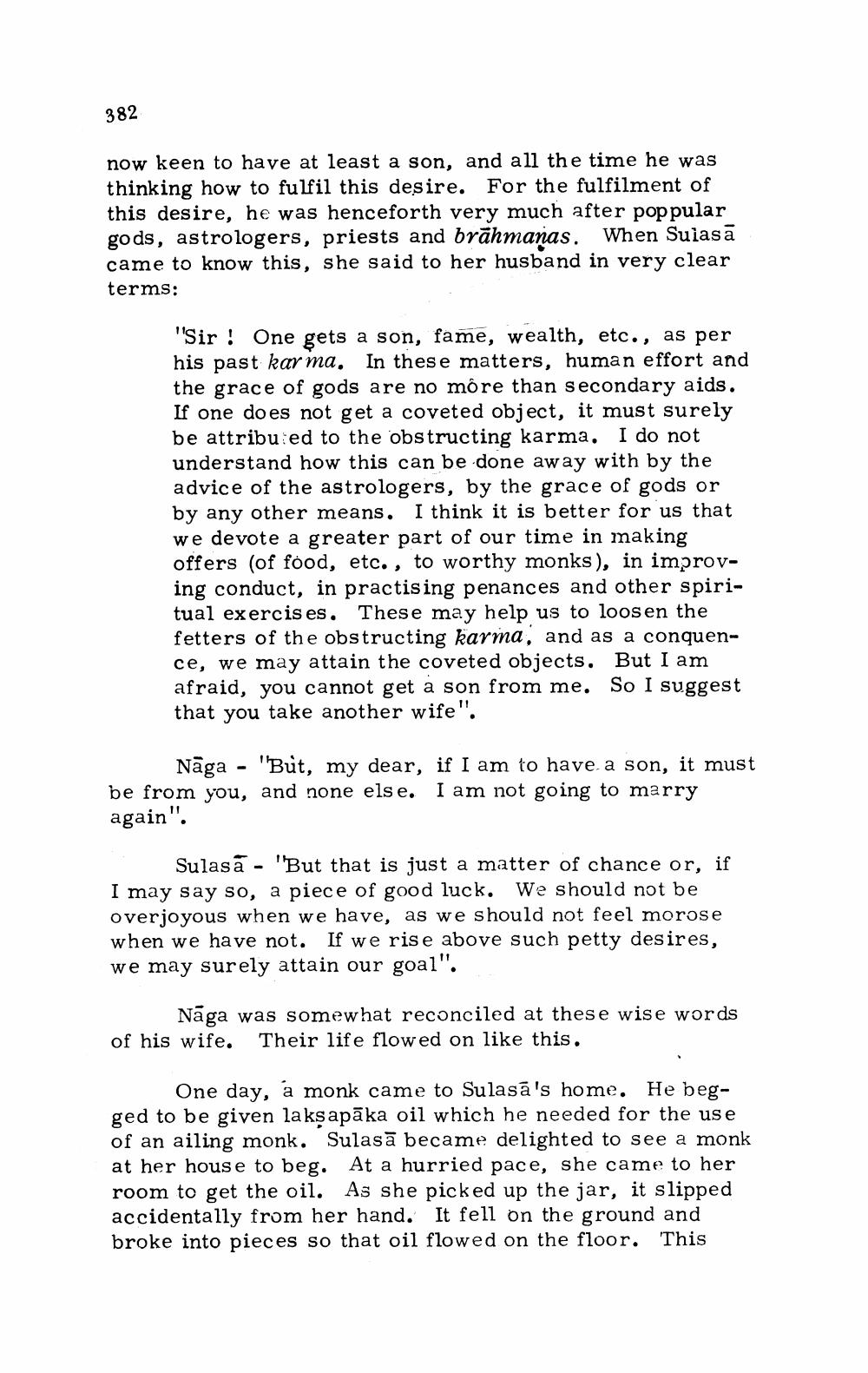________________
382
now keen to have at least a son, and all the time he was thinking how to fulfil this desire. For the fulfilment of this desire, he was henceforth very much after poppular gods, astrologers, priests and brāhmanas. When Sulasa came to know this, she said to her husband in very clear terms:
"Sir ! One gets a son, fame, wealth, etc., as per his past kar ma, In these matters, human effort and the grace of gods are no more than secondary aids. If one does not get a coveted object, it must surely be attribu ed to the obstructing karma. I do not understand how this can be done away with by the advice of the astrologers, by the grace of gods or by any other means. I think it is better for us that we devote a greater part of our time in making offers (of food, etc., to worthy monks), in improving conduct, in practising penances and other spiritual exercises. These may help us to loosen the fetters of the obstructing karia, and as a conquence, we may attain the coveted objects. But I am afraid, you cannot get a son from me. So I suggest that you take another wife".
Nāga - "But, my dear, if I am to have a son, it must be from you, and none else. I am not going to marry again".
Sulasā - "But that is just a matter of chance or, if I may say so, a piece of good luck. We should not be overjoyous when we have, as we should not feel morose when we have not. If we rise above such petty desires, we may surely attain our goal".
Nāga was somewhat reconciled at these wise words of his wife. Their life flowed on like this.
One day, a monk came to Sulasā's home. He begged to be given laksapāka oil which he needed for the use of an ailing monk. Sulasā became delighted to see a monk at her house to beg. At a hurried pace, she came to her room to get the oil. As she picked up the jar, it slipped accidentally from her hand. It fell on the ground and broke into pieces so that oil flowed on the floor. This




